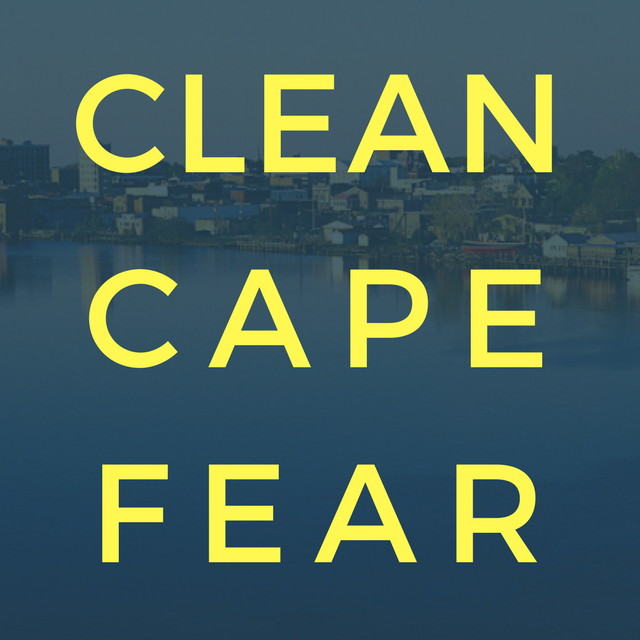Oppose NC DEQ's Proposed Groundwater Standard for PFOA/PFOS
Your voice is needed to OPPOSE NC DEQ's proposed groundwater standards for PFOA/PFOS!
NC DEQ is hosting a virtual public hearing on Tuesday, February 2, 2021 at 6:00pm. This hearing is to gather public comments and share information regarding several proposed groundwater standards, including recommendations for PFOA and PFOS.
Here's why we feel you should publicly oppose these proposed PFOA/PFOS groundwater standards:
1. It fails to address PFAS as a class.
2. It is not health protective.
3. It does not align with other states leading the way on PFAS.
4. It contradicts NC DEQs own lower values legally agreed upon for other PFAS.
Clean Cape Fear feels the only acceptable level of PFAS in groundwater is one that is health based to protect all children and other vulnerable populations. That is why we are demanding NC DEQ set a groundwater standard of 1ppt for the sum total of all PFAS concentrations. This level is supported by the most current science and leading evidence. Click here to learn more about the research we used to inform our decision.
Ways to take action and be heard:
Click here to register for Tuesday's public hearing and sign-up to give public comment.
You can also submit your written comments to NC DEQ by March 16th at GWTriRevComments@ncdenr.gov
What can you say:
[Introduce yourself and share a brief personal story (no more than 2-3 sentences) about why or how the current proposed rule for PFOA/PFOS will negatively impact your health or quality of life. Offer up your personal concerns.]
Then consider including the following statement:
NC groundwater standards must protect our children and other vulnerable populations. The current proposed rule of 70ppt combined total for PFOA and PFOS does not use the most current science and leading evidence to protect North Carolina's most vulnerable from the hundreds of PFAS we know contaminate our state's groundwater supplies. NC DEQ needs to act on PFAS as a class of highly toxic substances. We demand DEQ set a health protective groundwater standard of 1ppt as the total concentration for the sum of all PFAS. Only addressing individual, and obsolete, chemicals like PFOA/PFOS does not adequately address NC’s PFAS contamination crisis.
Here's a more detailed explanation of our reasoning:
1.It fails to address PFAS as a class.
PFOA and PFOS are two toxic chemicals within a much larger class of per- and polyfluorinated compounds, known as PFAS. Both compounds are considered obsolete and no longer in commercial use; however, there are over 5,000 different, newer, replacement PFAS currently used in manufacturing and commerce. Multiple studies confirm NC has some of the worst PFAS contamination in the nation and it encompasses more than just PFOA and PFOS. Focusing only on these two obsolete compounds is shortsighted and fails to address the real scope and threat to NC's groundwater.
2. It is not health protective.
The best available science continues to identify human health harm from exposures to PFOA, PFOS, and other PFAS at concentrations much lower than the proposed 70ppt. These health effects include harm to liver, kidneys, thyroid, immune system, and the development of children exposed to toxics prenatally.
3. It does not align with other states leading the way.
Approximately 10 states acted in 2019 and 2020 to set standards for PFOA and PFOS at levels 4x - 8x lower than what NC DEQ is proposing. These states set standards between 8 ppt and 16 ppt, or 20 ppt for the sum of five or more PFAS including PFOA/PFOS.
4. It contradicts NC DEQs own lower values legally agreed to regarding other PFAS.
The 2019 Consent Decree between Chemours, NC DEQ, and Cape Fear River Watch set a lower value as the trigger for groundwater-users to receive free water filters. The Consent Decree established levels of no more than 10 ppt of any one PFAS, and no more than 70 ppt for the sum of all PFAS.
Thank you for taking the time to #ActOnPFAS! Together, we can heal our communities and protect each other from further harm.
